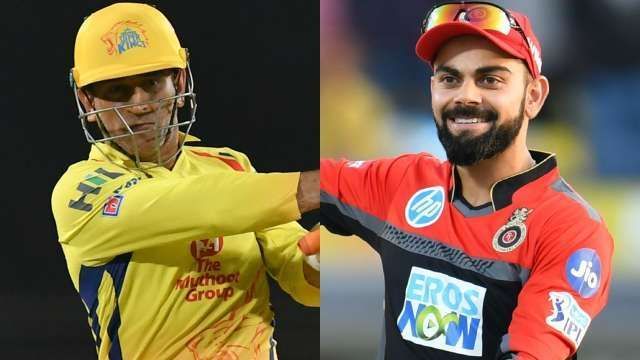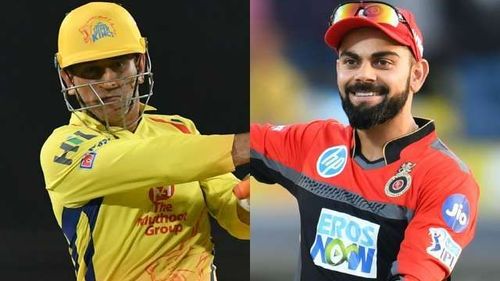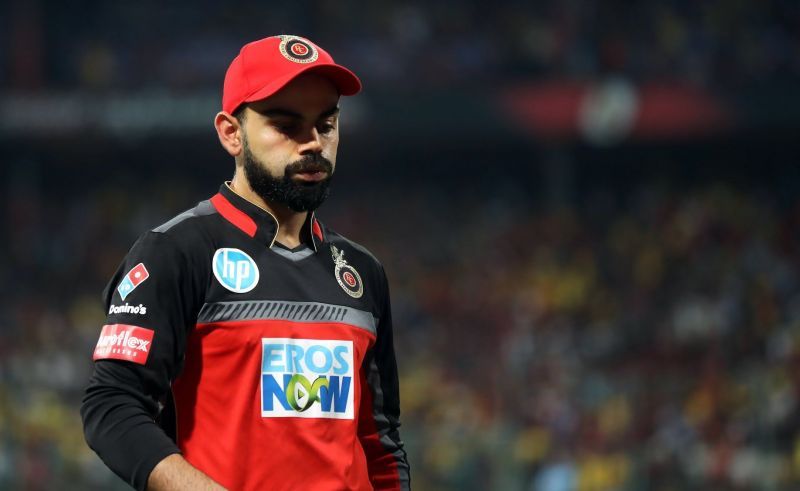
Dhoni vs Kohli: A tale of two captains

There is sense of calm around MS Dhoni. The Kings XI Punjab were cruising along nicely towards victory with over 40 runs needed from three overs. But then the Dhoni factor came in.
To turn thing around and break the opposition's momentum, along with improving performance, it is critical to rebuild the confidence of the team. This is where MS Dhoni as a leader is at his most effective. He has the ability to make players realize that they are part of the team because they are good, and that they cannot suddenly become bad overnight; that the cliche 'form is temporary, class is permanent' is actually true. This is the job of the leader for he has the most important role to play in the turnaround.
In sport, the opposition understands this and that is why they often target the leader. Very recently, Kohli was in the similar spot where the Royal Challengers Bangalore had to defend an excess of 60 runs in three overs and failed miserably. The opposition realised that if the leader has lost faith, or is struggling with his own form, he will not be in the best position to demand performance from the others. One needs to separate the two roles, as a player and as a captain. If you allow them to merge, your captaincy will deteriorate. A good limited-overs captain has to be either tactically shrewd or a fine man-manager who knows to make maximum use of limited resources.
A team may be anxious to turn things around as fast as possible but performance does not improve overnight, especially if the team's defects have been allowed to build up over a period of time. Everyone, including the leader must be patient. The mantra is when the times are good, stretch them. But when the times are bad, stick to the basics.
Batsmen talk about playing in the 'V' with a straight bat, when they are struggling. Once the confidence returns, they can get back to playing other shots. Similarly a captain needs to back his players and not change a team combination after every game. So even in tough times, there are things that you can do well.

Teams or individuals that have acquired a negative or a defeatist mindset tend to focus on things they cannot do. Hence it is important not to let what you cannot do interfere with what you can. It's a philosophy that has worked for CSK over the past year.
They think about what they can do, about how they can get better at what they do, about things that are in their control. A bowler for example who cannot bowl at 150 kmph can, as an alternative, move the ball both ways at a fairly sharp 135 kmph. There is always something you can do. Good teams like Chennai and Mumbai are patient; they keep chipping away at it, and they get rid of the defects one by one. More often than not, for them the tide will turn.
Resilience, the ability to bounce back and remain optimistic even when the chips are down is seen to be a very valuable attribute in Dhoni. Often teams condemn the efforts of a player when the desired results are not achieved. Sometimes this happens in the process of trying something new. Needless to say, every experiment and every innovation comes with a risk, even though it may appear only in the fine print. While failure is not fatal, over-analysis of failure kills risk-taking and eventually prove fatal.
The key for captain Kohli to turn things around for Royal Challengers Bangalore is positivity and the conviction that things will get better soon enough. In any team, there are always those who have faith in the team's ability and remain optimistic that the dark clouds will pass.
At the same times, there are also cynics who are quite happy to run down their team. The team needs to rally around the optimists like Kohli and the cynics need to be sidelined. Hence there is still so many things Kohli can learn from Dhoni while he is around.
Follow Sportskeeda for all the updates on purple cap, points table, schedule, news, live scores, orange cap and fantasy tips.